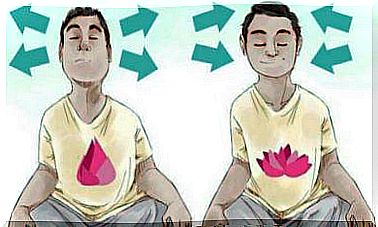8 Signs Of Dementia Everyone Should Know

Although it often cannot be prevented, it is essential to recognize the early signs of dementia. Then you can more quickly find a treatment that will help you deal with it.
The sooner you notice cognitive decline, the more likely you are to maintain your quality of life. Your cognitive functions give you the ability to remember things and to carry out your daily activities .
Dementia goes beyond what are considered normal consequences of old age and is normally a response to other primary and secondary diseases that affect the brain.
According to data from the World Health Organization, there are approximately 47.5 million people in the world with dementia. In addition, doctors give 7.7 million new diagnoses each year. So today it causes innumerable disabilities and dependence among the elderly.
There are some therapies that can help cope with dementia. However, it remains overwhelming for patients as well as their caregivers and relatives.
Most worrisome is the fact that many people ignore the signs of dementia. Even though it’s quite common, they don’t know how it develops. Because it is so important to know how to detect the symptoms in order to take action in a timely manner, we want to share the eight primary signs of dementia with you.
Find out what they are!
8 signs of dementia
1. Difficulty coming up with words
One of the first signs of dementia is having trouble finding words to express yourself.
Therefore, patients who begin to develop this condition may need a few minutes to recall a specific word. It might even be a word they use constantly, but they just can’t remember.
2. Problems Understanding Time
People who are at high risk of developing this disorder have a very hard time understanding what is in the past, present, or future. Often when they talk about time they don’t understand what it means or they tend to confuse the order of things.
3. Loss of Short Term Memory


Short-term memory problems may seem common, but this is actually an early sign of brain wear and tear from dementia.
Not being able to recall certain important events that happened just hours or days before is a typical sign that something is wrong with your brain’s functioning.
When he or she walks into a room, a person with dementia also cannot remember what he or she was going to do there in the first place.
4. Mood swings
Due to the changes in brain chemistry associated with the onset of dementia, people who suffer from this disease also often experience depressed or irritable moods .
Sudden changes in personality or behavior can be a sign that your cognitive functions are failing.
5. Difficulty Performing Daily Tasks


Another important symptom is having difficulty performing many common, everyday tasks.
A person who has decreased cognitive function may then no longer be able to perform tasks at work. This leads to very simple mistakes or, for example, mistakes in household tasks.
6. Not being able to recognize places
As dementia develops, patients begin to have a harder time recognizing places where they normally spend time. In addition, they may feel confused or lost in their own home.
Not remembering how or why you came to a place or where you are is a sign of dementia.
7. languor


Losing cognitive functions involves a series of chemical reactions. These occur both in the patient’s mental state and in their ability to maintain their physical abilities.
Subsequently, a person begins to feel increasingly fatigued when performing normal activities. They also lose the motivation they used to enjoy.
8. Difficulty Writing
Just as difficulties can develop in finding the right words, those who suffer from dementia often have difficulty writing as they did before.
Thus, changes in writing and difficulty expressing in writing are also alarms that they should seek help.
Even though many cases of dementia cannot be prevented or stopped, it is essential to be aware of the signs and find help to cope with them.
The sooner you notice the signs of dementia, the more likely it is that you will maintain your quality of life.









